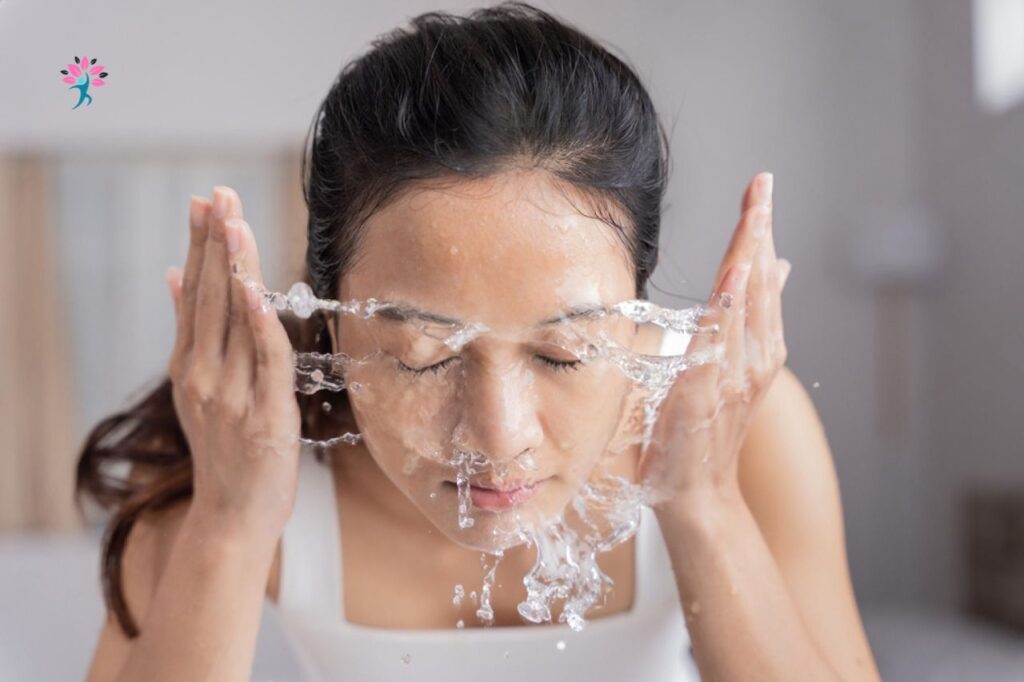Acne is a common skin condition that affects millions of people worldwide, regardless of age or gender. While genetics, diet, and stress play roles in acne development, maintaining proper hygiene is one of the most effective ways to prevent breakouts and promote clear skin. In this blog, we will discuss how to prevent acne with proper hygiene and provide actionable skincare tips to keep your skin healthy and acne-free.
What Causes Acne?
Before diving into how hygiene affects acne, it’s important to understand the causes. Acne occurs when hair follicles become clogged with excess oil, dead skin cells, and sometimes bacteria. This clogging can lead to the formation of pimples, blackheads, and cysts. The following factors contribute to acne:
- Excess oil production: Overactive sebaceous glands can produce more oil, making the skin more prone to breakouts.
- Clogged pores: When dirt, oil, and dead skin cells accumulate in the pores, they can block the hair follicles, leading to acne.
- Hormonal changes: Hormonal fluctuations during puberty, menstruation, pregnancy, and stress can increase oil production and worsen acne.
- Bacteria: The bacteria Propionibacterium acnes (P. acnes) thrives in clogged pores, causing inflammation and pimples.
Now that we know the causes, let’s explore how proper hygiene can prevent acne.
1. Regularly Clean Your Face

One of the most effective ways to prevent acne is by keeping your face clean. Regular cleansing helps remove dirt, oil, and impurities that can clog your pores and contribute to acne. It’s crucial to wash your face at least twice a day—once in the morning and once before bed.
Tips for Cleansing:
- Use a gentle cleanser: Harsh soaps and cleansers can strip the skin of its natural oils, leading to dryness and irritation. Look for a mild, non-comedogenic (won’t clog pores) facial cleanser.
- Avoid over-washing: Washing your face too often can irritate the skin and disrupt the skin’s natural barrier, leading to more oil production. Stick to washing twice daily.
- Warm water is best: Use lukewarm water, as hot water can strip your skin of moisture, while cold water may not remove oil effectively.
2. Shower After Exercise
Exercise is essential for maintaining overall health, but sweat can contribute to acne if left on your skin for too long. When sweat mixes with oils and bacteria on the skin, it can clog pores and lead to breakouts. Therefore, it’s important to shower and cleanse your body after sweating.
Tips for Post-Exercise Hygiene:
- Shower immediately: After a workout, try to shower within 30 minutes to remove sweat and bacteria from your skin.
- Use an acne-fighting body wash: If you are prone to body acne (back acne or chest acne), consider using a body wash containing salicylic acid or benzoyl peroxide, which help fight acne-causing bacteria.
- Wear breathable clothing: Choose moisture-wicking fabrics that allow sweat to evaporate and reduce the risk of breakouts.
3. Wash Your Hands Before Touching Your Face
Our hands come into contact with countless surfaces throughout the day, making them a breeding ground for bacteria and dirt. When we touch our faces, we transfer these impurities to our skin, which can clog pores and contribute to acne.
Tips for Hand Hygiene:
- Wash your hands frequently: Always wash your hands before touching your face, especially after touching public surfaces, using your phone, or after eating.
- Avoid touching your face: Try to reduce the habit of touching your face unnecessarily. If you do need to touch your face, make sure your hands are clean.
4. Clean Your Pillowcase and Bed Linens Regularly

Your pillowcase and bed linens are in constant contact with your face, and they can accumulate oils, dirt, and bacteria over time. Sleeping on a dirty pillowcase can lead to acne outbreaks, particularly if you have sensitive skin or are prone to breakouts.
Tips for Clean Bedding:
- Change pillowcases frequently: Wash your pillowcase at least once a week, or more often if you have oily skin. Consider using silk or satin pillowcases, which are gentler on the skin than cotton.
- Wash your sheets regularly: Aim to wash your bed linens every 1-2 weeks to remove dirt, sweat, and oil buildup.
- Use non-comedogenic products: Be mindful of the skincare products you use, as some oils and creams can transfer to your pillowcase and lead to acne. Always choose non-comedogenic options.
5. Keep Your Hair Clean
Your hair can also contribute to acne, especially if you have oily hair. When hair comes into contact with your face, it can transfer oils, dirt, and hair products that can clog your pores and cause acne.
Tips for Hair Hygiene:
- Wash your hair regularly: Keep your hair clean by washing it at least two to three times a week, depending on your hair type.
- Avoid greasy hair products: If you use hair products like gels or oils, be sure to keep them away from your forehead, as they can contribute to clogged pores.
- Tie your hair back: If you have long hair, tie it back during the day to reduce contact with your face.
6. Exfoliate Your Skin Weekly
Exfoliating helps remove dead skin cells that can clog pores and contribute to acne. Regular exfoliation can keep your skin smooth and prevent the buildup of excess oils and impurities.
Tips for Exfoliating:
- Use a gentle exfoliator: Avoid harsh scrubs that can irritate the skin. Opt for a mild chemical exfoliator containing salicylic acid or glycolic acid.
- Don’t over-exfoliate: Exfoliating too often can irritate the skin and worsen acne. Aim to exfoliate once or twice a week, depending on your skin type.
- Follow with moisturizer: After exfoliating, always apply a non-comedogenic moisturizer to hydrate and soothe your skin.
7. Maintain a Healthy Diet and Hydration
While proper hygiene is essential, your diet and hydration also play a significant role in preventing acne. Eating a balanced diet rich in vitamins, minerals, and antioxidants can help your skin stay healthy and reduce inflammation.
Diet Tips for Clear Skin:
- Eat foods rich in antioxidants: Foods like berries, leafy greens, and nuts are high in antioxidants that help reduce inflammation and promote healthy skin.
- Avoid dairy and processed foods: Some studies suggest that dairy products and processed foods may trigger acne. Pay attention to how your skin reacts to different foods and adjust accordingly.
- Stay hydrated: Drinking plenty of water helps keep your skin hydrated and flushes out toxins from your body.
8. Use Non-Comedogenic Skincare Products
Using non-comedogenic (non-pore-clogging) skincare products is crucial for preventing acne. Choose products that are specifically designed to avoid clogging your pores, and always check the labels for ingredients that may contribute to breakouts.
Tips for Choosing Skincare Products:
- Look for the label: Always check for the term “non-comedogenic” on skincare and makeup products.
- Avoid heavy oils: Steer clear of skincare products that contain heavy oils, such as mineral oil or coconut oil, as they may clog your pores.
- Use oil-free makeup: If you wear makeup, opt for oil-free foundations and powders that won’t contribute to acne.
Final Thoughts
Preventing acne with proper hygiene is one of the most effective and affordable ways to maintain clear, healthy skin. By following these simple tips—such as regularly cleaning your face, showering after exercise, and using non-comedogenic products—you can keep your skin acne-free. Remember, consistency is key, and making hygiene a priority in your daily routine will go a long way in preventing acne and promoting a glowing complexion.
For more skincare tips and advice, visit our website at https://venzec.icu and explore our wide range of articles on healthy living and beauty.










Leave a Reply